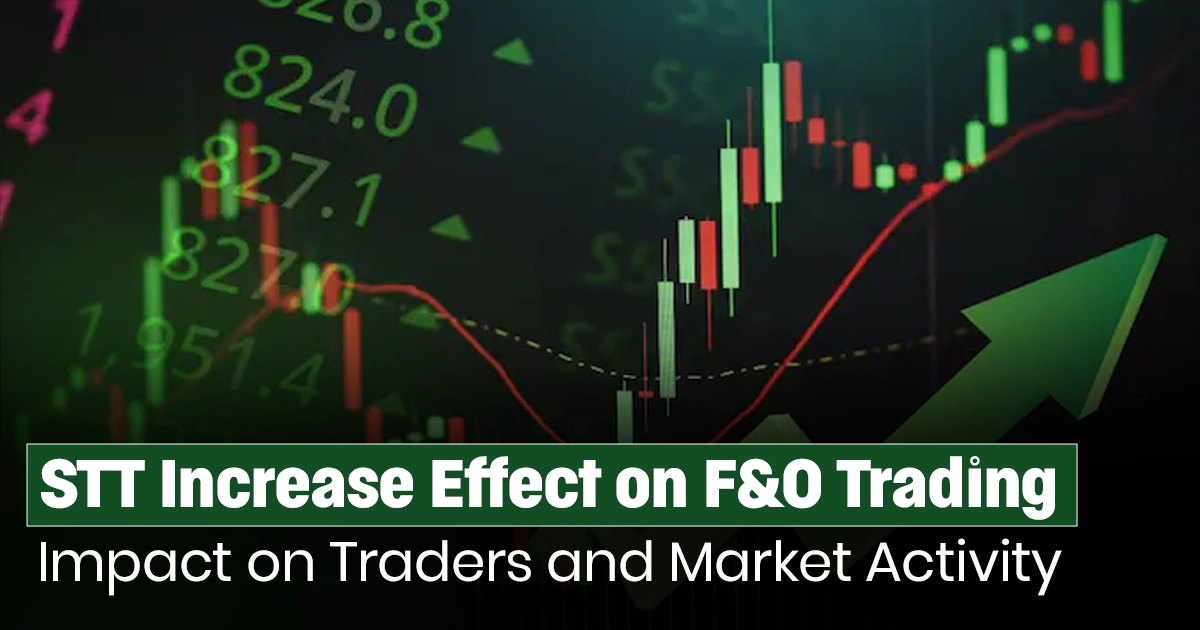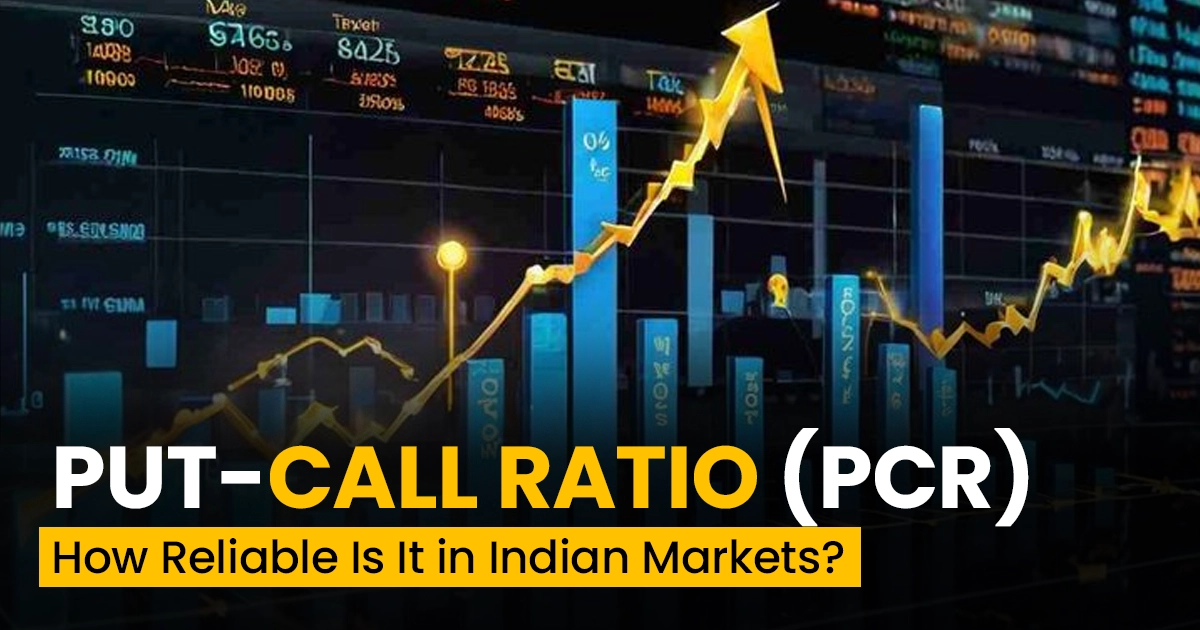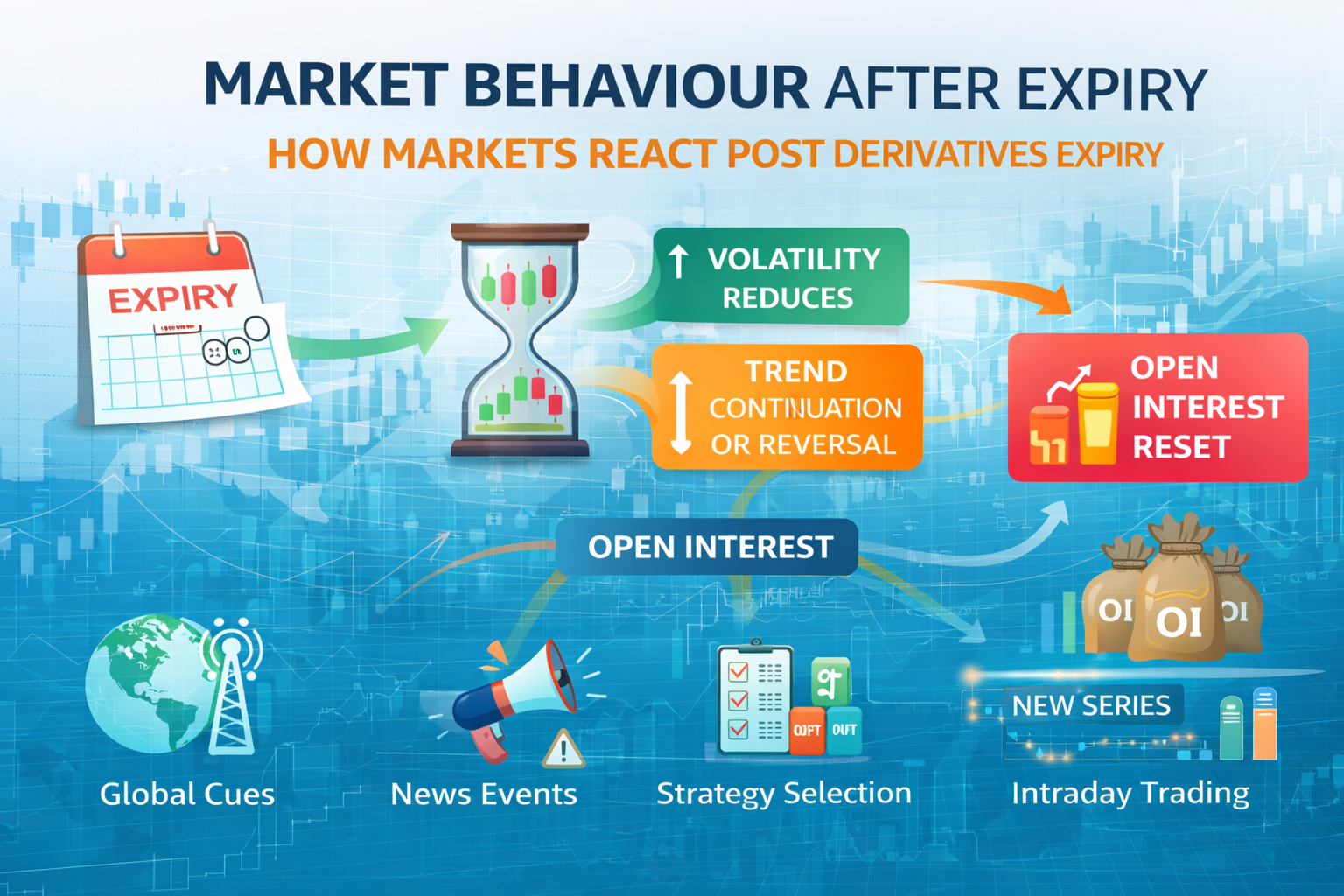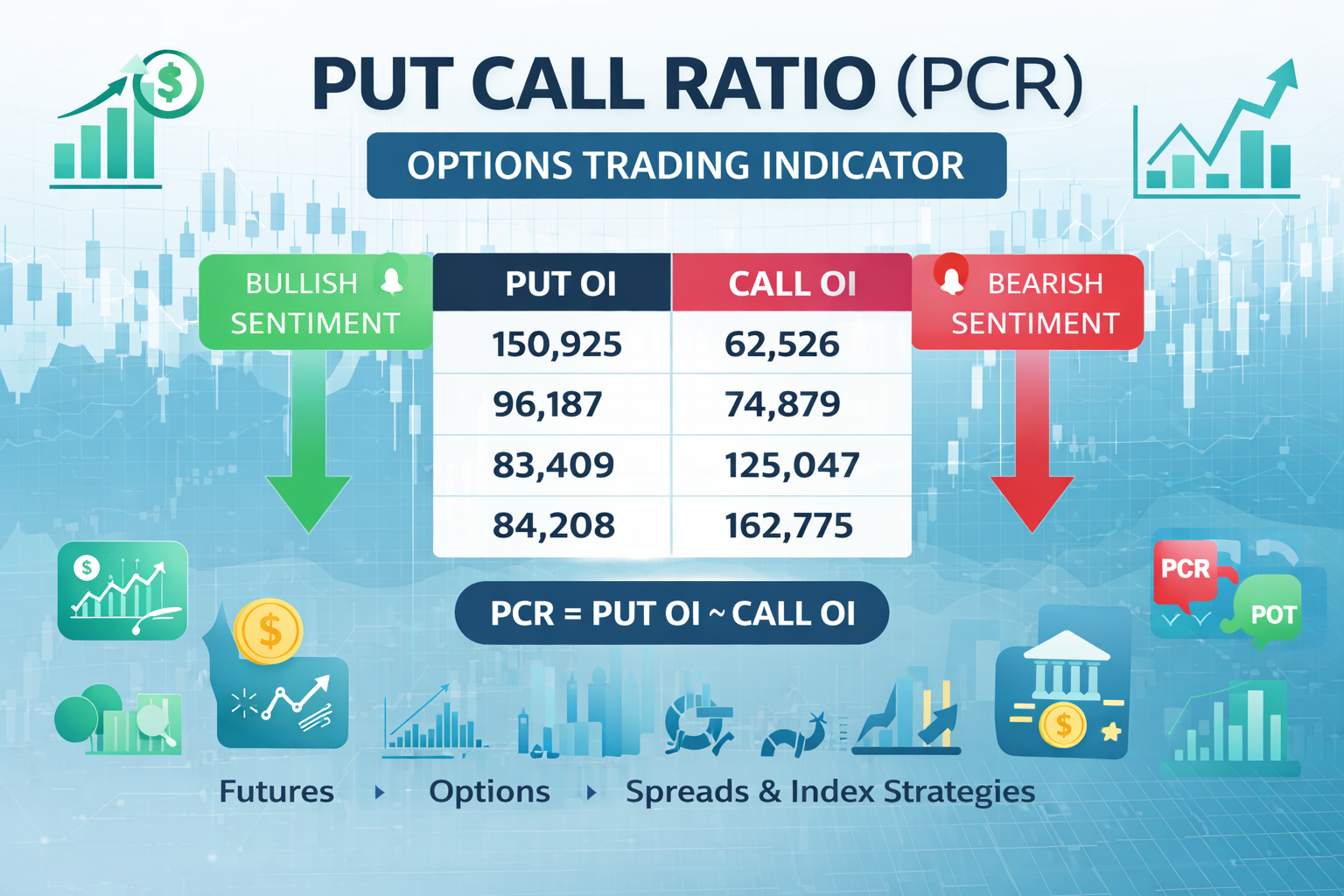The Impact of Global Events on Indian Derivatives Markets
Derivatives markets, whether international or domestic, are highly susceptible to the impact of global events. In general, these events have a wide range of implications on market sentiment, liquidity, volatility, and trading strategies. Since markets like derivatives offer avenues for hedging, speculation, and price discovery, this analysis is important for a trader, investor, and any other participant in India's derivatives markets.
In this blog, we shall explore how all forms of global events have a tremendous influence on India's derivative markets.
1. Global Economic Events: Growth, Recession, and Economic Indicators
The performance of the global economy has been playing a very important role in shaping the derivatives market in India. Some of the economic indicators which influence the behaviour of the traders in the derivatives market in India are GDP growth, inflation rates, unemployment data, and consumer confidence from major economies like the United States, the European Union, and China.
Effect on Indian Derivatives
- Volatility: When the global economies have a decline or boom, Indian derivative markets experience a rise in volatility. For instance, a sharp decline in U.S. GDP or a slowdown in Chinese manufacturing leads to bearish sentiments, and in turn, Indian futures and options take the same direction.
- Hedging and Speculation: Indian traders are now trading to anticipate potential global economic shocks sort of hedge against the rumoured recession in the United States or rising inflation within the economy. Conversely, positive economic data coming into the U.S. boosts speculative buying of Indian shares through derivatives.
2. Geopolitical Events-Trade Wars, Conflicts, and Political Instability
Such geopolitics in terms of trade wars, military conflicts, or political instability in the major economies can bring about tremendous changes in investor sentiment not only at the global level but also in Indian derivatives markets.
- Increased Uncertainty and Volatility: Global geopolitical risks are normally characterised by increased uncertainty. For instance, the U.S.-China trade war in recent years reflected turbulence in the stock and commodity markets across the world. Indian derivatives markets showed similar volatility with investors hedging against possible market swings.
- Commodity Prices: Geopolitical events, especially those occurring in oil-producing areas such as the Middle East, can impact global commodity prices. India is highly dependent on imported oil; thus, crude oil prices have a significant impact on India. Indian derivatives traders can respond to rising crude oil prices through commodity futures, especially crude oil, or stock futures of energy companies.
3. Global Market Movements: US Federal Reserve Decisions, European Central Bank Policies
Global central banks like the US Federal Reserve (Fed) and European Central Bank (ECB) dictate the global financial markets where Indian derivatives markets exist. A decision on interest rates, or a package of quantitative easing, can have far-reaching implications.
Indian Derivatives Market
- Currency Fluctuation: Any change in worldwide interest rates, particularly done by the Fed, tends to affect the foreign exchanges of the Indian Rupee (INR). Thereby an increase in the United States' interest rates causes a strengthening dollar and also weakens the rupee factor, which will be prevalent in the Indian equity as well as commodity derivatives. The currency futures and the options of India will see amplified trading volumes as these happen to be hedged.
- Interest Rate Sensitivity: The Indian futures and options markets are sensitive to global interest rates. Change in the latter would either increase or decrease the cost of capital, thereby influencing businesses and the underlying stocks in the derivatives markets. Traders would alter their positions in Nifty or Sensex futures to accommodate these changes.
4. Global Financial Crises and Market Downturns
Financial crises like the 2008 global financial crisis or the COVID-19 pandemic-induced crash are highly destructive to financial markets around the world, even to derivatives markets in India.
Indian Derivatives Impact
- Heavy Market Movements: In global financial crises such as the 2008 crash or the early 2020 market corrections due to COVID-19, Indian stock markets usually witness sudden drops or surges. Derivatives markets being more leveraged respond much more vehemently, and futures and options volumes increase as people take positions on market sentiments.
- Higher Hedging Demand: In the event of a crisis, there is a greater possibility of rush hedging positions by the traders who employ hedging in derivatives, mainly options. For example, during the global market meltdown that happened in March 2020, derivative traders in India had a higher demand for protective puts as well as short futures positions on indices like Nifty and Sensex.
5. Global Health Events: Pandemic, Disease Outbreaks, Public Health Issues
The COVID-19 pandemic was a stark reminder of how global health events can affect financial markets worldwide, including Indian derivatives. Such huge volatility frightens one about the impending global recession, and lockdown measures, and disrupts trade and supply chains.
Impact on Indian Derivatives:
- Extreme Price Fluctuations in Markets: This was an extreme period in Indian markets; Nifty 50 and Sensex witnessed massive selling. There is extreme sensitivity towards derivative prices in this volatile type of market.
- Derivatives are demanded due to Hedging of supply chain disruption or decreased corporate earnings. Options as well as futures volumes gained traction while hedging for risk protection.
6. Shocks of Global Commodity Prices in Oil, Gold, or Other Commodities
Commodity import in India happens in large volumes, mainly in oil, gold, and metals. Global price fluctuations in such commodities can directly impact the derivative market of India.
Indian Derivatives Impact
- Commodity Futures Trading: Trends in commodity futures are rising at Indian exchanges due to fluctuations in global prices. This can be because a sudden increase in world oil prices can lead to an upward trend in crude oil futures on MCX, and thus, such fluctuations are seen in crude oil-related stocks and derivatives in the stock market as well.
- Inflation Expectations: Geopolitical tensions or any inflationary concerns around the globe tend to push gold prices up and encourage the Indian trader to trade or hedge his portfolios with the assistance of gold derivatives in expectation of inflation.
7. Global Corporate Earnings and Mergers/Acquisition
Global corporate events are any announcements of corporate earnings by large multinational companies, M&A, restructuring, or other corporate activities that alter the market mood and, therefore, the derivatives market in India.
Impact on Indian Derivatives:
Stock-Specific Derivatives: News on earnings of large multinational companies that significantly beat or miss expectations causes sharp shocks to global stock indices impacting Indian stocks with international linkages. Indian traders tend to respond to this new information by adjusting their open positions in stock futures and index futures.
- Mergers and Acquisitions: Global major mergers or acquisitions directly affect the price of companies traded on Indian stock exchanges. Traders can speculate the outcome of these events using derivatives or hedge against the uncertainty in the market.
Conclusion
The impact of global events on the Indian derivatives market is basic. Economic data, geopolitics, global financial crisis, and commodity price shocks are just a few reasons that cause the behaviour of traders and investors in the Indian derivatives markets to fluctuate. Traders will often hedge against these risks using derivatives, speculate about market movements, and use derivatives as a way of diversifying their portfolios. Hence, it is very much necessary to know about these factors when one looks forward to finding his or her way through the labyrinth of Indian derivatives.
As the global scenario is continuously regulating the financial markets, Indian traders must be abreast with the knowledge and craft their strategies in a manner to face maximized opportunities with minimized risk at each step in such an ever-changing global scenario.









